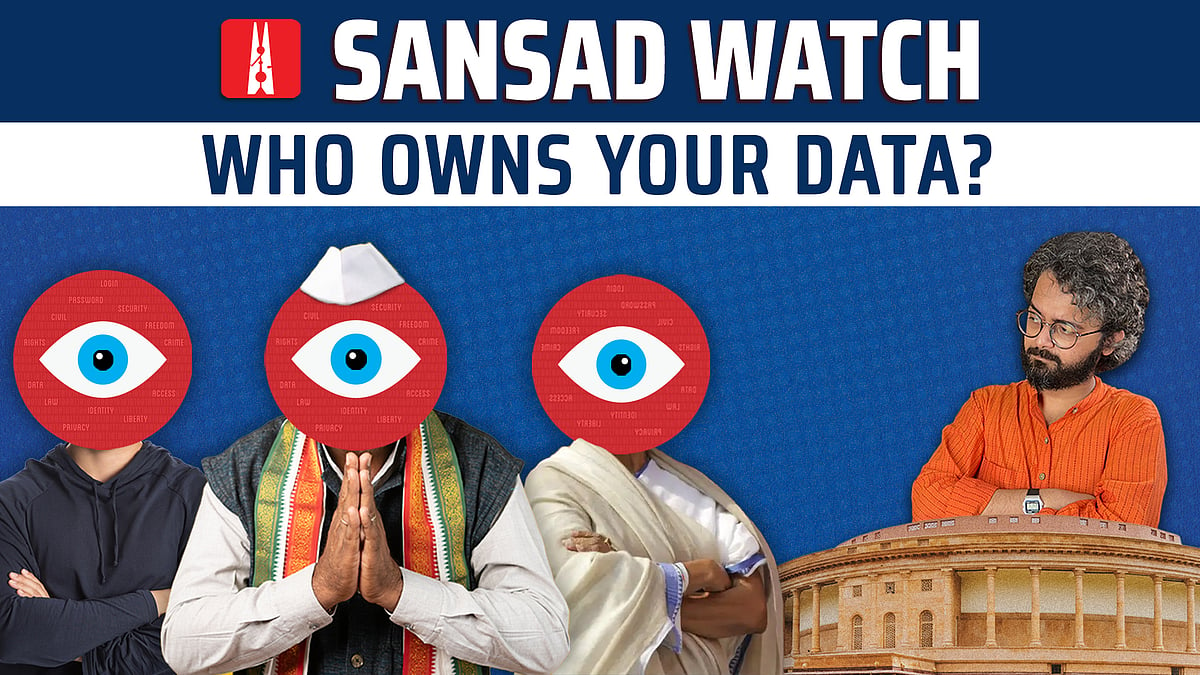‘No compensation for victims, surveillance state’: Opposition MPs on Data Protection Bill in Lok Sabha
The latest version of the legislation has reportedly retained controversial portions of the draft that was proposed last year.
Union Minister of Electronics and Information Technology Ashwini Vaishaw tabled the Digital Personal Data Protection Bill, 2023, in the Lok Sabha today amid concerns by the opposition about the rights to privacy and information.
During the debate, opposition MPs also pointed out that the Union government had withdrawn a version of the Bill last year and the new edition needs to be looked at by a panel. Amid rumours that the Bill was being introduced as a money Bill to restrict the scale of the objection by opposition MPs, Union minister Vaishnaw, however, clarified that it is a general Bill and the government is ready to discuss “each point in detail”.
The latest version of the legislation has reportedly retained controversial segments of the original Bill that was proposed in November last year. It is learnt to have granted major exemptions to the centre, including the right to exempt government agencies from adverse consequences citing national security, foreign relations or public order. It is expected to give advisory powers to a data protection board to suggest the taking down of content or block intermediary access in “public interest”.
If passed and cleared by Parliament, the Bill will play a crucial role in how tech companies operate in India, as well as how the country engages with other regions and their privacy laws.
Newslaundry had earlier reported on how the previous versions could impact journalists as well as whistleblowers. Read all about it here.
Let’s take a look at what the opposition leaders said as the government tried to introduce the new version in Parliament on Thursday.
‘No compensation for victims, surveillance state’
After Vaishnaw tabled the Bill, AIMIM MP Asaduddin Owaisi listed out four points to object to the introduction. He said it violated the right to privacy and the freedom of speech and religion. “Thirdly, it empowers the government to access people’s private data and this is likely to create a surveillance state... Fourthly, It is anti-women because only one in three women have ever used the internet…In the Bill, it says the data protection board has been designed to take complaints… With these four points, I oppose the introduction and I want a division sir.
Amid slogans of “bhejo bhejo JPC ko bhejo”, Congress’s Kaliabor MP Gaurav Gogoi demanded that the Bill be sent to the standing committee because it impinges on the fundamental right to privacy as per the Puttaswamy judgment.
Trinamool Congress’s Dum Dum MP Saugata Ray objected to the “cumbersome Bill”, which he said was “very different to the original Bill that was sent to the standing committee”. He said the chairman of the parliamentary panel that looked into the legislation has “changed the Bill altogether” and “now they have included the word data protection”. “I want this Bill to be again sent to the standing committee.”
Congress’s Anandpur Sahib MP Manish Tewari objected to the Bill on three counts. “First of all, a Bill which was considered by the joint parliamentary committee came back to the House, was withdrawn by the government, was reintroduced, cannot be introduced as a finance Bill. Number two, it’s a Bill which requires serious consideration by a joint parliamentary committee for the simple reason that it is in complete contradiction to the fundamental right to privacy…This Bill cleaves the entire digital universe into two parts. The Bill will apply with full force to all non-governmental organisations and the entire government universe is going to be exempt.”
NCP MP Supriya Sule also objected to the Bill.
“First is excessive centralisation of all the data. It’s a complete insult and is hurting the federal structure of the government of India. Even the right to information is diluted…The government of India will be completely protected, others will be completely exposed.”
The Baramati MP said the penalty clause has been brought down from Rs 500 crore to 250. “What is the meaning,” she asked, pointing out that this was disproportionate when applied to both a small NGO and big industry. “There is no compensation. There is penalty but what about a victim?...anybody can have our data. There is no privacy.”
RSP MP NK Premachandran also objected to the Bill saying that the “basic human fundamental right” of privacy is “being taken away”. “Day before yesterday, the IT standing committee on information technology has submitted a parliamentary committee report on the floor of this house. So many recommendations are there.”
Premachandran said “it is not fair” on part of the government to come up with the Bill “without looking into the recommendations”.
Congress MP Adhir Ranjan Chowdhury said the Bill will trampled upon the right to information and privacy. “The Bill, by amending the RTI Act, wants to introduce an era of corruption because new personal data like assets and educational qualifications of corrupt government functionaries cannot be asked for under RTI.”
The Baharampur MP said the Bill does not provide compensation to those whose personal data has been compromised or who has suffered loss due to theft of personal data. Pointing out a violation of the right to privacy, he said the Bill does not restrict the government from accessing personal data. He demanded that the legislation be sent to a panel for “threadbare” discussions.
Congress MP Shashi Tharoor said that as a former chairman of a standing committee which looked into the data protection Bill, he had repeatedly requested the minister to take the panel into confidence on the matter. The Thiruvananthapuram MP said it is a matter of disappointment that the committee has not been asked to look into the Bill, which has been repeatedly modified and brought into the House. He said the “three different versions do not match” and the Bill should now be sent to a panel to study.
Union minister Ashwini Vaishnaw said, “No MP has raised a question about legislative competence. The question that has been raised is whether this is a finance Bill or money Bill or general Bill. I want to clarify that this is a general Bill and not a money Bill. A detailed discussion will happen. Whichever points the members have raised, be it about the Puttuswamy judgement, or compensation, or the allegations against the government, we are ready to discuss each subject in detail.”
A majority then voted in favour as Meerut MP Rajendra Agarwal, who was in the chair, conducted voting on the introduction of the Bill.
 Explained: CoWIN data leak and why you should worry about privacy
Explained: CoWIN data leak and why you should worry about privacy Sansad Watch Ep 21: Does the new data protection law fit the bill?
Sansad Watch Ep 21: Does the new data protection law fit the bill?NL Digest
A weekly guide to the best of our stories from our editors and reporters. Note: Skip if you're a subscriber. All subscribers get a weekly, subscriber-only newsletter by default.
